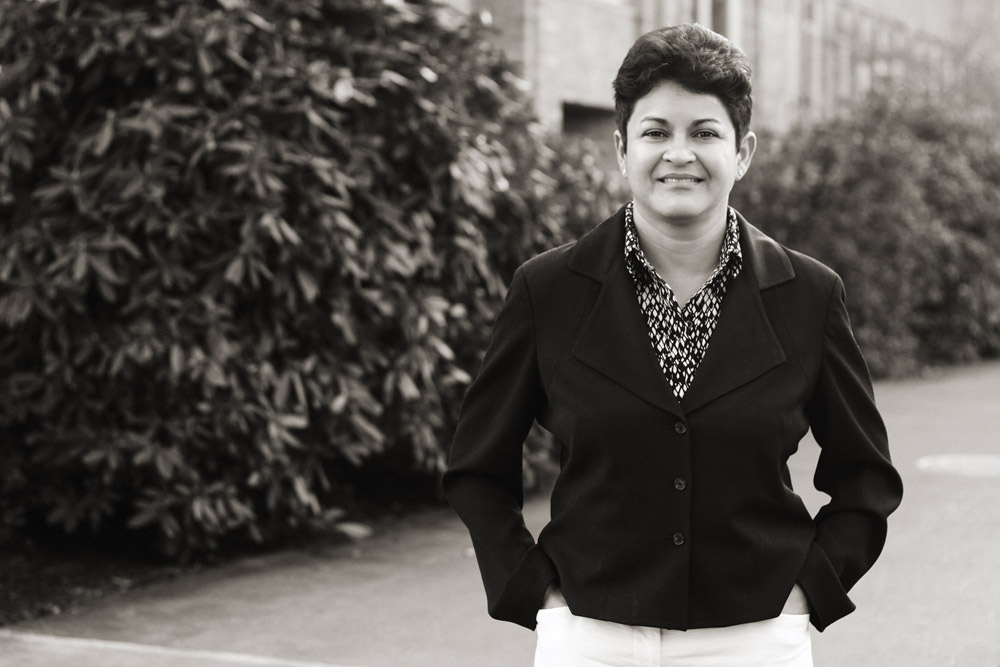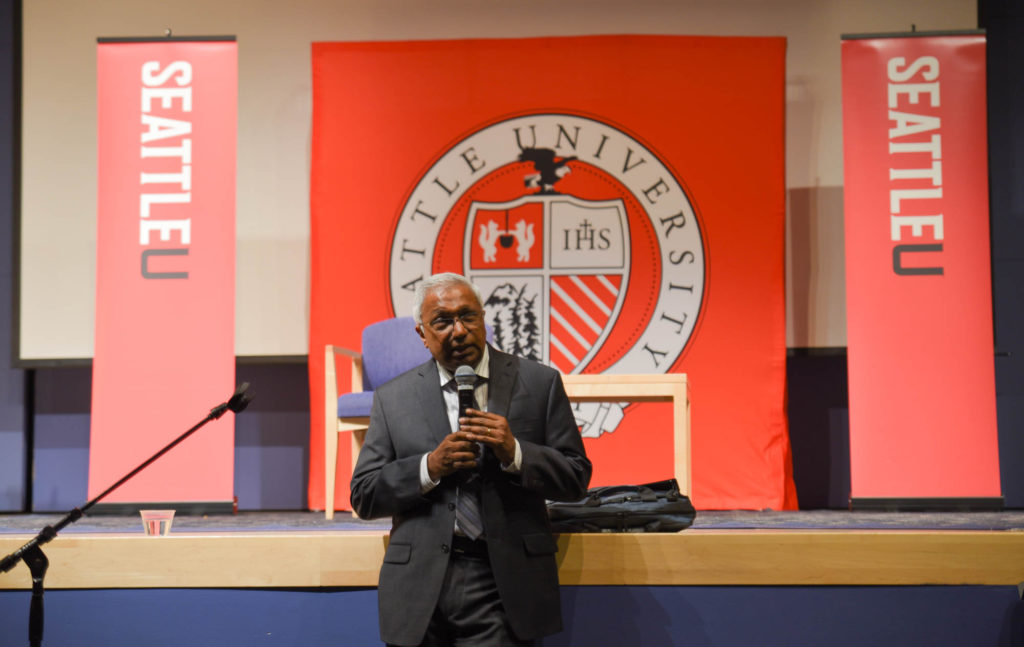After more than six months of scouting and interviews, the search for the new provost will soon reach its conclusion—a decision that could affect Seattle University’s campus climate for years to come.

One of the provost candidates, Sharon Jones. She was previously Dean of the Shiley School of Engineering at the University of Portland.
A number of staff and students visited Pigott auditorium last week for an opportunity to better acquaint themselves with the candidates and to ask them questions directly. With the provost’s important role of communicating the needs of students and faculty to higher level administrators, the results of the search will undoubtedly influence campus issues.
The first of the finalists to present was Dr. Sharon Jones, Dean of Engineering at the University of Portland. With her prior experience as a faculty member at Lafayette College, Jones has cultivated a strong background with mission-based universities like Seattle U, making her well-prepared for the role.
In her 20-year-long academic career, as a person of color, Jones has made it her goal to make the field of engineering both more diverse and more ethical.
“I wanted to be a role model for people that looked like me,” Jones said.
She described her vision of the university experience as holistic, rather than compartmentalized, with the Seattle U principles of social justice, spiritual development and academic rigor all working in tandem. Her ideal model for the university is also one that looks at students as individuals with their own unique sets of aspirations and challenges that they must overcome.
“Student success is not the same for everyone,” Jones said. “The challenge is creating an environment where everyone can know the opportunities that are available to them.”
During the presentation, Jones also fielded a series of questions about how she would address issues facing Seattle U faculty. Some of the most emphasized among them were pay equity in the face of a bad housing market, as well as the “silo” effect, in which faculty of different colleges tend to stay insulated and do not work outside their discipline.
The second finalist to present was Godfrey Mungal, Dean of Engineering at Santa Clara University. Mungal described his seven years as a dean at SCU, and his previous experience at Stanford University, as influential in shaping the way he approaches the role of provost.

Provost candidate Mark Godfrey Mungal speaks on how he would would make an impact at Seattle University.
In supervising the various disciplines of engineering and seeing their individual needs, Mungal learned that a good leader is one that has a broad understanding of the groups they represent.
“It’s not about what you know, but what you don’t know,” Mungal reiterated throughout the presentation.
He referred to this philosophy as a major goal for the provost, constantly learning about students and staff outside his area of expertise.
Mungal claimed that, by expanding his understanding of the other colleges and the culture of the university as a whole, he will be increasingly well-equipped to represent them.
Mungal emphasized that his vision for provost was to connect students to their strengths and help them see beyond their major.
“Education is not just about finding your career, it’s about finding your career and your calling,” Mungal said. “If you realize your place in the world, we have succeeded; if you haven’t, then we have failed.”
The questions they contributed made the candidates evaluate and put forward their own definitions of student success, as well as ideas on how they would achieve them.
Student Government of Seattle University represented the student body well, but the overall turnout of students left something to be desired, with one of the candidates even commenting that they had expected more students.
“It’s critical for students to be involved in these presentations because it gives them the ability to have direct input in the academic direction of the school,” said junior international business major and Vice President of University Affairs for SGSU Braden Wild, “Without that input the school both makes choice without valuable student input and students lose agency in the process.”
The announcement for the new provost with be made toward the end of February. Until then, students can visit www.seattleu.edu/provost/search/ for more information on the finalists and the process behind the provost search.
Carlos may be reached at
ccervantes@su-spectator.com








